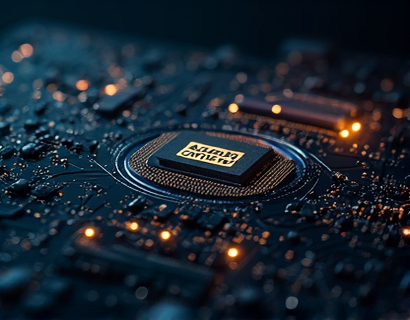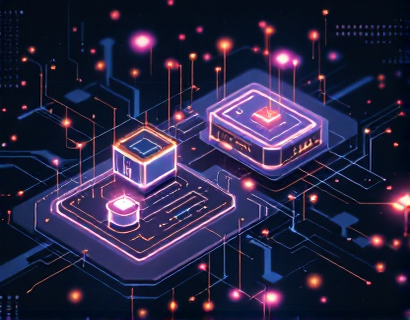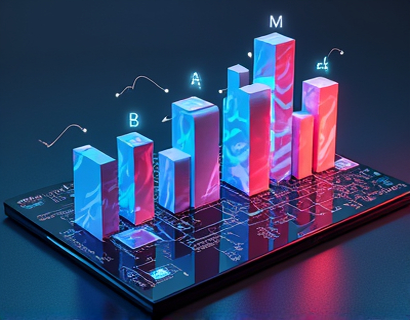Blockchain Oracle Management: Streamlining Data Integration and Smart Contract Execution for Decentralized Applications
In the rapidly evolving landscape of blockchain technology, the integration of reliable data sources and the execution of smart contracts are pivotal for the success of decentralized applications (dApps). Oracle management plays a crucial role in this process by facilitating the seamless flow of data between the blockchain and external sources. This article delves into the advanced solutions and strategies for optimizing oracle management, thereby enhancing the overall performance and security of blockchain applications.
Understanding Oracle Management in Blockchain
Oracle management in blockchain refers to the process of integrating external data sources with smart contracts on a blockchain network. Oracles act as intermediaries, providing real-time data and external information to smart contracts, which otherwise operate in an isolated environment. The efficiency and reliability of these oracles directly impact the functionality and trustworthiness of dApps.
The primary challenge in blockchain oracle management is ensuring the accuracy, security, and timeliness of data transmission. Traditional oracle solutions often suffer from centralization, which can introduce single points of failure and vulnerabilities. Advanced oracle management solutions aim to address these issues by deploying decentralized and trustless mechanisms.
Decentralized Oracle Networks
Decentralized oracle networks are designed to mitigate the risks associated with centralized oracles. These networks consist of multiple independent oracles that validate and aggregate data before feeding it into smart contracts. This approach enhances security and reduces the risk of manipulation or failure.
One of the key benefits of decentralized oracle networks is their ability to provide redundancy. By leveraging multiple sources, the network can cross-verify data, ensuring higher accuracy and reliability. This decentralized approach also aligns with the core principles of blockchain, promoting transparency and trust among participants.
Data Aggregation and Validation
Data aggregation is a critical component of decentralized oracle networks. The process involves collecting data from various sources, validating its integrity, and then consolidating it into a single, coherent output. This ensures that smart contracts receive accurate and up-to-date information.
Validation mechanisms can include cryptographic proofs, consensus algorithms, and reputation systems. For instance, oracles that consistently provide accurate data may be given higher weights in the aggregation process. This not only improves the quality of data but also incentivizes reliable behavior among oracles.
Smart Contract Integration
Integrating oracles with smart contracts requires a robust and secure framework. Smart contracts must be designed to interact with oracles in a way that ensures data integrity and prevents potential attacks. This involves implementing secure communication protocols and verifying the authenticity of data before executing contract logic.
One effective approach is to use cryptographic techniques such as zero-knowledge proofs, which allow oracles to prove the validity of data without revealing the actual data. This enhances privacy and security, making it difficult for malicious actors to manipulate the system.
Real-Time Data Processing
Real-time data processing is essential for many decentralized applications, particularly those in finance, gaming, and IoT. Advanced oracle management solutions enable dApps to receive and act on data in near real-time, ensuring a responsive and dynamic user experience.
To achieve this, oracle networks must have low latency and high throughput capabilities. This can be achieved through optimized data routing, efficient data compression techniques, and leveraging edge computing to process data closer to the source.
Enhancing Security Through Oracle Management
Security is a paramount concern in blockchain oracle management. Decentralized oracle networks inherently offer better security compared to centralized solutions, but additional measures can further bolster the system.
Implementing multi-signature wallets for data submission and contract execution can prevent unauthorized access. Regular audits and vulnerability assessments are also crucial to identify and mitigate potential security risks. Moreover, using reputable and well-maintained oracle protocols can reduce the likelihood of exploits.
Use Cases of Advanced Oracle Management
The applications of advanced oracle management extend across various industries, each with unique requirements and challenges.
Finance
In the financial sector, oracle management enables decentralized exchanges (DEXs) and lending platforms to access real-time market data, price feeds, and external economic indicators. This ensures fair pricing and reduces the risk of price manipulation.
Gaming
In blockchain-based gaming, oracles can provide real-time game state data, player statistics, and external events. This enhances the gaming experience by enabling features like dynamic rewards and interactive storylines.
Supply Chain
For supply chain management, oracles can track and verify the movement of goods, ensuring transparency and traceability. This is particularly useful for industries that require strict compliance and regulatory adherence.
Challenges and Future Directions
Despite the numerous benefits, oracle management still faces several challenges. One major issue is the scalability of decentralized oracle networks, which must handle increasing volumes of data without compromising performance. Additionally, the interoperability between different blockchain platforms and oracle services remains a significant hurdle.
Future developments in oracle management are likely to focus on improving scalability through layer 2 solutions and cross-chain interoperability protocols. The integration of artificial intelligence and machine learning can also enhance data validation and predictive analytics, further enriching the capabilities of oracle networks.
Conclusion
Advanced oracle management is a transformative force in the blockchain ecosystem, enabling decentralized applications to interact with the real world in a secure and reliable manner. By addressing the challenges of data integration and smart contract execution, oracle management solutions pave the way for more robust and trustworthy dApps. As the technology continues to evolve, the potential for innovation and growth in the blockchain space remains vast.










































